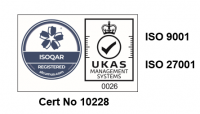What are the DBS Filtering Rules for criminal check certificates?
November 27th, 2020 by Jonathan Bazely
On the 29th May 2013 legislation came into force that removed certain old and minor conviction information, from the Exceptions Order of the Rehabilitation of Offenders Act. In practical terms this means that not all conviction information will be displayed on a Standard or Enhanced DBS Disclosure. Some old or minor convictions will be removed from the certificate issued to the individual. These rules are described as the DBS Filtering Rules.
These rules were updated again on 28th October 2023.
Updates to the filtering rules mean that all unspent convictions (as defined by the Rehabilitation of Offenders Act), that have not yet become spent, will automatically be disclosed. This is to ensure continuity between information disclosed on Basic DBS checks and on Standard and Enhanced DBS checks. Further information on this 2023 update and the potential impact can be found here.
What convictions are filtered from a DBS certificate?
Those 18 years old or over at the time of offence
Convictions will be removed for a non-specified offence if:
- 11 years have passed since the date of the conviction
Cautions will be removed for a non-specified offence if:
- 6 years have passed since the date of the caution
Those under the age of 18 at the time of offence
Convictions will be removed for a non-specified offence if:
- Same rules apply as above however the elapsed time is reduced to 5.5 years
Cautions, reprimands and warnings received when an individual was under 18 will not appear on a Standard or Enhanced certificate automatically.
Information never Filtered from a Certificate
Standard and Enhanced DBS certificates must always include the following records no matter when they were received:
- All convictions for specified offences
- Adult cautions for specified offences
- All convictions that resulted in a custodial sentence, whether or not suspended
More guidance can be found on the DBS website here.
Filtering of information on Disclosure Scotland applications:
For more information on the legislation changes in Scotland, please read the Disclosure Scotland website. Please note that the Rehabilitation of Offenders Act (1974) (Exclusions and Exceptions) (Scotland) Amendment Order 2015 applies different filtering rules to the treatment of convictions, which fall under the Scottish regime.
Policy and recruitment wording
Please note that in response to the DBS filtering rules, the recruitment question should be amended to:
Do you have any unspent conditional cautions or convictions under the Rehabilitation of Offenders Act 1974 which would not be filtered in line with current guidance? (Y/N)?
Do you have any adult cautions (simple or conditional) or spent convictions that are not protected as defined by the Rehabilitation of Offenders Act 1974 (Exceptions) Order 1975 (Amendment) (England and Wales) Order 2020? (Y/N)?





